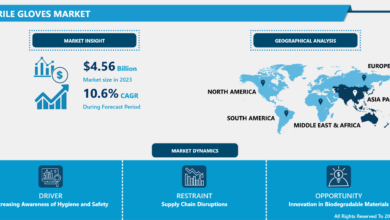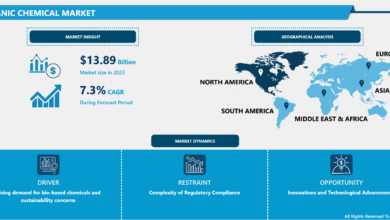Kura Oncology Reports Final Results from Phase 2 Study of Tipifarnib in T-Cell Lymphoma
– Overall response rate of 56% and median overall survival of 32.8 months in patients with advanced AITL, an aggressive form of T-cell lymphoma –
– Results presented at ASH underscore potential of farnesyl transferase inhibition to drive clinical benefit in cancer patients with high unmet need –
SAN DIEGO, Dec. 13, 2021 (GLOBE NEWSWIRE) — Kura Oncology, Inc. (Nasdaq: KURA), a clinical-stage biopharmaceutical company committed to realizing the promise of precision medicines for the treatment of cancer, today announced final results from a Phase 2 study of tipifarnib as a monotherapy in patients with relapsed or refractory T-cell lymphoma, including an overall response rate (ORR) of 56% and a median overall survival of 32.8 months in heavily pretreated patients with angioimmunoblastic T-cell lymphoma (AITL).
The final results are being presented during an oral session today at the American Society of Hematology (ASH) Annual meeting in Atlanta. A copy of the presentation is available on the Company’s website at www.kuraoncology.com.
“These data compare favorably to approved therapies for treatment of relapsed/refractory T-cell lymphoma, particularly in patients with AITL for whom there are few treatment options,” said Thomas Witzig, M.D., a Hematologist at Mayo Clinic and the study’s lead investigator.
A total of 65 patients with relapsed or refractory T-cell lymphoma were enrolled in the study, with a median of three prior regimens (range 1-8). Twenty-five patients (38%) received prior autologous stem cell transplant. The ORR among all efficacy-evaluable patients was 40% (23/58) and the median duration of response (DOR) was 4.6 months.
Notably, the ORR in patients with AITL, an aggressive form of T-cell lymphoma and a pre-specified subgroup in the trial, was 56% (18/32), including nine complete responses, with a median DOR of 7.8 months and a median overall survival of 32.8 months.
Tipifarnib was generally well-tolerated in this Phase 2 study, with adverse events consistent with its known safety profile. The most frequently observed treatment-related adverse events (all grades) were hematological (neutropenia, thrombocytopenia, anemia) and gastrointestinal (nausea, diarrhea), as well as fatigue.
“We continue to be encouraged by the growing body of data for tipifarnib in both solid tumors and hematologic malignancies,” said Stephen Dale, M.D., Chief Medical Officer of Kura Oncology. “The clinical benefit demonstrated in late-stage patients with T-cell lymphoma, including heavily pretreated patients with AITL, underscore the potential of farnesyl transferase inhibition to drive clinical benefit in patients with cancer.”
This multi-center, single-arm, open-label Phase 2 study was designed to evaluate tipifarnib as a monotherapy in adult patients with relapsed or refractory T-cell lymphoma. The primary objective of the study was to determine the antitumor activity by ORR. Secondary objectives included safety, DOR and progression-free survival, and exploratory analyses included overall survival and identification of potential biomarkers associated with tipifarnib activity.
About Tipifarnib
Tipifarnib is a potent, selective and orally bioavailable inhibitor of farnesyl transferase in-licensed from Janssen. Previously, tipifarnib was studied in more than 5,000 cancer patients and showed compelling and durable anti-cancer activity in certain patient subsets; however, no molecular mechanism of action had been determined that could explain its clinical activity across a range of solid tumor and hematologic indications. Leveraging advances in next generation sequencing as well as emerging information about cancer genetics and tumor biology, Kura is seeking to identify those patients most likely to benefit from tipifarnib. In November 2018, the U.S. Patent and Trademark Office issued a new patent for tipifarnib as a method of treating patients with AITL, providing exclusivity in the U.S. to 2037. In March 2020, the U.S. Food and Drug Administration granted Fast Track designation to tipifarnib for the treatment of adult patients with relapsed or refractory AITL.
About Kura Oncology
Kura Oncology is a clinical-stage biopharmaceutical company committed to realizing the promise of precision medicines for the treatment of cancer. The Company’s pipeline consists of small molecule drug candidates that target cancer signaling pathways. KO-539, a potent and selective menin inhibitor, is currently in a Phase 1b clinical trial (KOMET-001) for patients with relapsed/refractory AML, including patients with NPM1 mutations or KMT2A rearrangements. Tipifarnib, a potent, selective and orally bioavailable farnesyl transferase inhibitor, has received Breakthrough Therapy Designation for the treatment of patients with HRAS mutant HNSCC and is currently in a registration-directed study (AIM-HN) in patients with this devastating disease. In addition, Kura is pursuing the use of tipifarnib in combination with other oncology therapeutics to address larger genetic subsets of patients, including those who have HRAS- and/or PIK3CA-dependent HNSCC. The Company is also developing KO-2806, a next-generation farnesyl transferase inhibitor, which is intended to target innovative biology and larger oncology indications through rational combinations. For additional information about Kura, please visit the Company’s website at www.kuraoncology.com.
Forward-Looking Statements
This news release contains certain forward-looking statements that involve risks and uncertainties that could cause actual results to be materially different from historical results or from any future results expressed or implied by such forward-looking statements. Such forward-looking statements include statements regarding, among other things, the efficacy, safety and therapeutic potential of tipifarnib, and the potential of farnesyl transferase inhibition to drive clinical benefit in patients with cancer. Factors that may cause actual results to differ materially include the risk that compounds that appeared promising in early research or clinical trials do not demonstrate safety and/or efficacy in later preclinical studies or clinical trials, the risk that Kura may not obtain approval to market its product candidates, uncertainties associated with performing clinical trials, regulatory filings, applications and other interactions with regulatory bodies, risks associated with reliance on third parties to successfully conduct clinical trials, the risks associated with reliance on outside financing to meet capital requirements, and other risks associated with the process of discovering, developing and commercializing drugs that are safe and effective for use as human therapeutics, and in the endeavor of building a business around such drugs. You are urged to consider statements that include the words “may,” “will,” “would,” “could,” “should,” “believes,” “estimates,” “projects,” “promise,” “potential,” “expects,” “plans,” “anticipates,” “intends,” “continues,” “designed,” “goal,” or the negative of those words or other comparable words to be uncertain and forward-looking. For a further list and description of the risks and uncertainties the Company faces, please refer to the Company’s periodic and other filings with the Securities and Exchange Commission (SEC), including the Company’s Quarterly Report on Form 10-Q for the quarter ended September 30, 2021 filed with the SEC on November 4, 2021, which are available at www.sec.gov. Such forward-looking statements are current only as of the date they are made, and Kura assumes no obligation to update any forward-looking statements, whether as a result of new information, future events or otherwise.
Contacts
Company:
Pete De Spain
Vice President, Investor Relations &
Corporate Communications
(858) 500-8803
[email protected]
Investors:
Robert H. Uhl
Managing Director
Westwicke ICR
(858) 356-5932
[email protected]
Media:
Jason Spark
Managing Director
Canale Communications
(619) 849-6005
[email protected]
 Disclaimer: This content is distributed by The GlobeNewswire
Disclaimer: This content is distributed by The GlobeNewswire 

